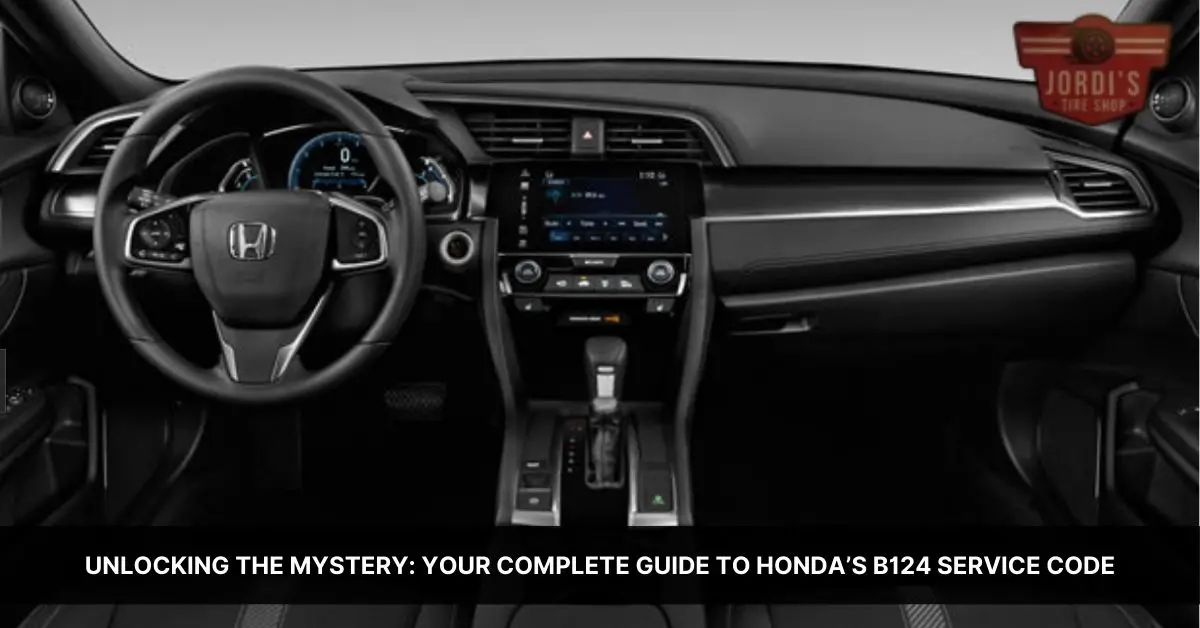Ever found yourself puzzled by the mysterious Honda B124 service code lighting up your dashboard? You’re not alone. This cryptic message can leave many Honda owners scratching their heads, unsure of what it means or what to do next.
Understanding the Honda B124 Service Code
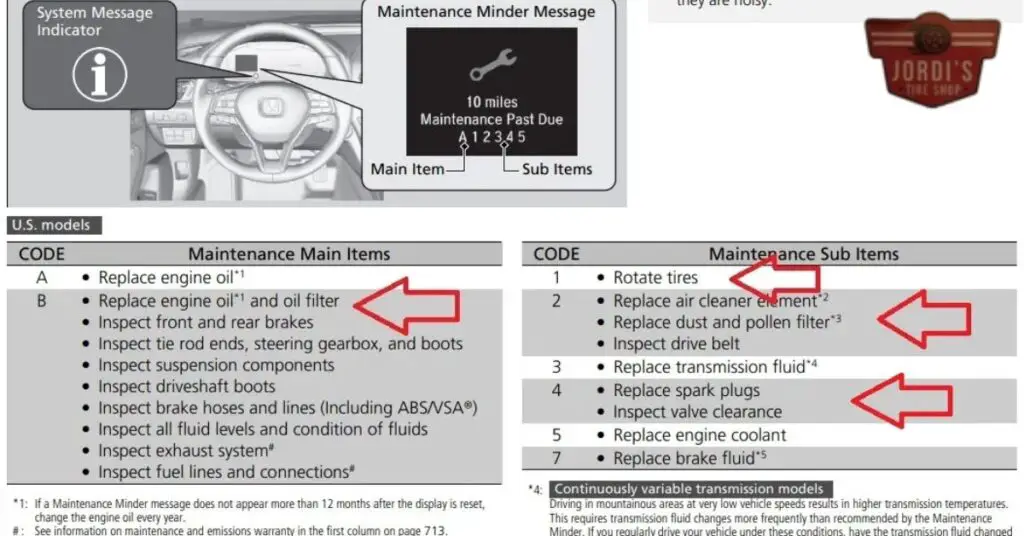
Let’s investigate deeper into the mystery behind the Honda B124 service code. Unravel the purpose it serves, comprehend its structure, and learn how to interpret it.
History and Purpose of the Honda B124 Service Code
Before we move forward, it’s pivotal to understand the existence of this code. Incepted as a part of Honda’s Maintenance Minder System, the B124 service code plays a key role in ensuring your vehicle’s longevity.
Primarily, this system aids in keeping your car in optimal condition by automating service reminders. The code B124 essentially represents a collective of exact maintenance requirements for your vehicle. These include tasks like changing the engine oil, replacing the engine oil filter and even inspections for several vital components like your brakes and tie rod ends.
Structure and Interpretation of the Honda B124 Service Code
Once you are aware of its origin and purpose, you can decode the structure of the Honda B124 service code and understand its components. Here, the “B” hints towards oil and filter changes and thorough inspections of various aspects, from brakes to suspension components.
The series of numbers that follow act as subcodes, each with a exact meaning. Specifically, “1” refers to a tire rotation, “2” calls for an air filter and cabin air filter replacement, whereas “4” implies that the spark plugs need changing and the valve clearance should be checked.
The structure and interpretation of the Honda B124 service code may initially seem complex, but once you know what each letter and number implies, it’s easier to determine what work your car needs. So, this system simplifies car maintenance and reduces the likelihood of unexpected and costly repairs.
The Importance of the Honda B124 Service Code
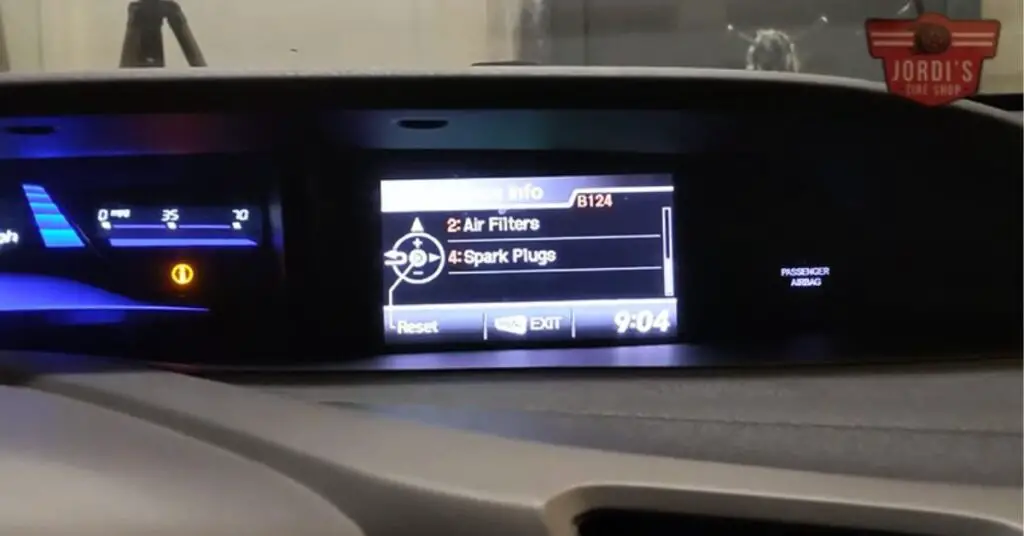
Proper understanding of the Honda B124 service code plays a critical role in your vehicle’s maintenance. Aside from its historical development discussed earlier, let’s investigate into its importance in vehicle preservation and the potential consequences of neglecting it.
Significance of the B124 Code in Vehicle Maintenance
The B124 service code is a critical element of Honda’s automated Maintenance Minder System. It serves as a precise guide for exact maintenance tasks that your vehicle requires, varying from an oil change to exact component checks such as brake and tie rod end inspections.
This code helps optimize your vehicle’s health by flagging important upkeep routines, so preventing issues that could deteriorate its performance or even cause irreversible damage. It makes it simpler for you to gauge when your Honda needs attention and precisely what care it demands.
Also, by aligning to this code, you’ll be able to maintain a record of your vehicle maintenance, providing a clearer picture of your Honda’s health over time. This methodical approach can prove beneficial when tracking potential trends or recurring issues.
Impact of Ignoring the B124 Code
Ignoring the B124 service code isn’t a wise decision. Shrugging off this signal could land your vehicle in a worrisome predicament. This maintenance reminder is designed not merely as a suggestion, but as a pivotal instrument to help forestall major issues from surfacing.
By neglecting this code, you run the risk of letting minor issues escalate into major ones. This could cause a important reduction in your vehicle’s lifespan, as well as unexpected and possibly considerable repair costs.
Also, it could lead to safety risks if unchecked issues affect your vehicle’s performance when on the road. Hence, it’s crucial to not overlook the B124 code and to heed its indicated maintenance tasks in a timely manner. Doing so keeps your Honda running well while ensuring you travel safely and reliably.
Steps Involved in Addressing the Honda B124 Service Code
Addressing the Honda B124 service code involves a couple of key actions: identifying the code and deciding the approach to take, whether through professional assistance or a DIY method.
Identifying the Honda B124 Service Code
Recognizing the Honda B124 service code is the first step in addressing it. When you see a “B124” appear on your dashboard’s multi-information display, that indicates the need for specified maintenance tasks. Breaking down the B124 code, “B” represents a need for oil and filter changes, plus to thorough inspections. The next digit, “1,” signals a tire rotation requirement. “2” indicates there’s a required replacement of the air cleaner element, the dust and pollen filter, and an inspection of the drive belt. Finally, “4” refers to the necessity for spark plug replacement and inspection of the valve clearance. Understanding these code components allows you to pinpoint the required maintenance tasks.
Professional Assistance vs DIY for Honda B124 Service Code
Once you’ve identified the Honda B124 service code, the next decision involves the approach. Depending on your level of automobile mechanic skills and the time you can dedicate to servicing, you can choose between two routes: seeking professional assistance or adopting a Do-It-Yourself (DIY) approach.
Professional assistance ensures that certified Honda technicians perform the tasks. They possess specialized knowledge and have access to advanced tools and genuine Honda parts. Their experience allows for accurate diagnosis and efficient service execution.
But, if you’re equipped with the required resources, tools, and expertise, tackling the Honda B124 service code tasks yourself might be a viable option. DIY has the advantage of being potentially cost-effective, offering the possibility to save on service fees. Plus, it gives you a personal understanding and hands-on experience with your car’s health.
Keep in mind, certain parts of the B124 service code, like spark plug replacement and valve clearance inspection, would typically require specialized tools and a higher level of mechanical skill. So evaluate your ability and readiness before making this decision. Both approaches, when correctly managed, contribute to maintaining your Honda’s optimal condition.
Costs Associated with the Honda B124 Service Code
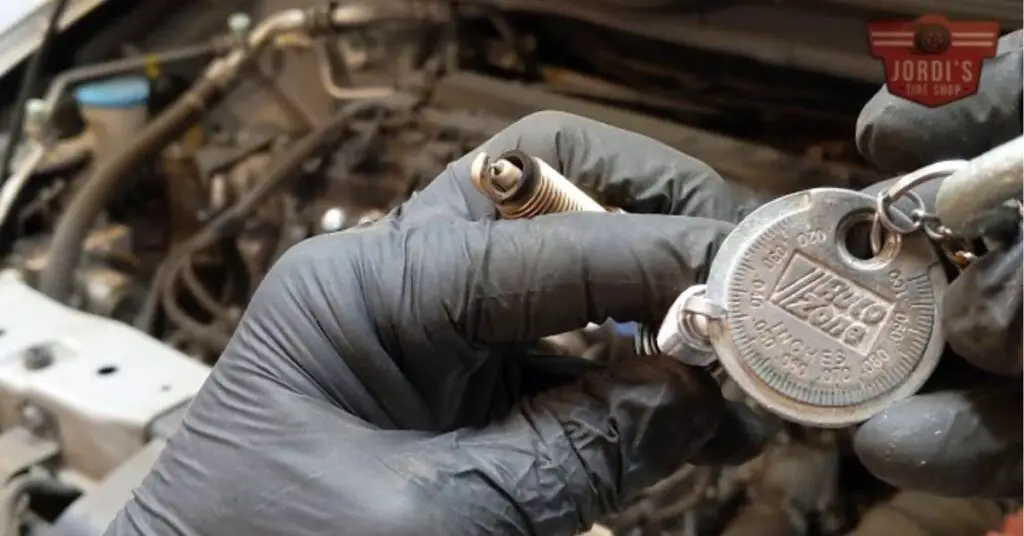
Addressing the Honda B124 service code doesn’t come without expenses. Let’s investigate deeper into the typical costs involved and some handy tips you can incorporate to reduce these costs.
Typical Expenses for B124 Service Code Maintenance
Usually, the main areas of expense while dealing with the Honda B124 service code involve labor and parts, such as oil, filters, and spark plugs. Labor costs, typically ranging between $75 and $150 per hour, depend on the mechanics’ expertise and the geographic location of the service center. Parts involved in B124 maintenance, oil and filters, for instance, see prices fluctuating between $45 and $90. More extensive tasks like spark plug replacements, contributing to the “4” in the B124 code, may incur costs between $105 and $250.
Keep in mind, these costs vary based on several factors like make and model of your Honda vehicle, lifespan of the components, kind of oil or filters used, and the exact nature of the tasks involved in the B124 maintenance schedule.
| Expense Type | Cost Range ($) |
|---|---|
| Labor | 75 – 150 |
| Parts | 45 – 250 |
Tips for Reducing Costs When Addressing the B124 Service Code
Trimming costs associated with Honda B124 maintenance can be easier than you may think. One effective way is by doing simple tasks yourself, such as changing the engine oil, replacing filters, or even rotating the tires. This DIY approach saves labor costs, albeit it requires a basic understanding of vehicle maintenance.
Other cost-saving measures involve shopping for replacement parts in bulk or during sales, and using promotional codes or discounts when possible. Regular maintenance checks are another proactive way to keep costs in check since timely detection of issues prevents them from escalating into more expensive repairs later on.
Finally, zeroing in on a trustworthy mechanic is a fantastic way to ensure you’re not overpaying for any service. Remember, transparent mechanics provide detailed breakdowns of their service charges – an easy way to guarantee cost effectiveness.
Real-Life Experiences with the Honda B124 Service Code
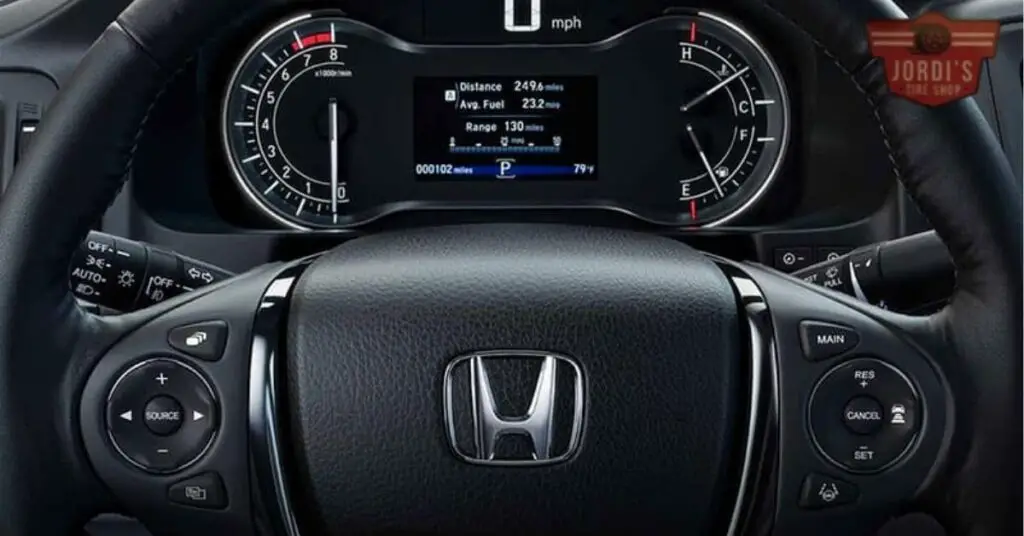
In this section, we’ll unearth some real-industry encounters with the Honda B124 service code. Let’s explore insightful anecdotes from Honda car owners and automotive experts, shedding light on common challenges and answers associated with this code.
Case Studies of Honda Car Owners Dealing with the B124 Service Code
In our research, we’ve come across many Honda owners who’ve dealt with the B124 service code. For example, one Honda Civic owner didn’t recognize the B124 code when it flashed on the dashboard. Ignoring it initially, the owner noticed worsening gas mileage and, eventually, unpredictable engine performance. After a visit to a local mechanic, it was revealed that the needed maintenance, signaled by the B124 code, had been neglected, resulting in the observed issues.
In another case, a Honda CR-V owner was diligent in responding to the B124 code. She enlisted the help of a neighborhood mechanic who promptly carried out an oil change, rotating the tires, replacing the air cleaner element and dust filter, and inspecting the valve clearance. By taking quick action, she prevented any major issues and sustained her vehicle’s excellent performance.
These instances illuminates the ramifications of ignoring the B124 code and the benefits of acting in a timely manner.
Learning from Automotive Expert Experiences with B124 Service Code
Automotive experts’ encounters with the B124 code provide invaluable insights. We’ve found, for instance, a seasoned mechanic stressing the importance of correctly interpreting the subcodes accompanying the B124 code. Misinterpreting ‘4’ as a requirement for a timing belt replacement instead of a spark plug change and valve clearance inspection, led to unnecessary work and expenditure.
In another experience, an auto repair shop owner highlighted how understanding the B124 code helped save a customer from expensive repairs. A clueless Honda owner, unaware of the B124 code, was suggested major engine repairs by a deceptive mechanic. The auto repair shop owner, recognizing the B124 service code, correctly identified that a simple spark plug replacement and valve clearance inspection was required, saving the customer unnecessary expense and hassle.
These experiences underpin the importance of accurate knowledge about the B124 code, emphasizing its primary role in reaching informed decisions for Honda vehicle maintenance.
Conclusion
You’re now well-equipped to handle the Honda B124 service code. It’s not just a random sequence of numbers and letters but a clear guide to essential maintenance tasks. Ignoring it can lead to serious vehicle issues, so it’s crucial to address it promptly. Whether you choose a DIY approach or professional assistance, understanding the code is the first step to effective vehicle maintenance. Remember, “B” signifies oil and filter changes, “1” is for tire rotation, “2” is about air cleaner element and dust filter replacements, and “4” indicates spark plug replacement and valve clearance inspection. By following this code, you’re not only optimizing your vehicle’s health but also potentially saving on future repair costs. So the next time your dashboard displays the B124 code, you’ll know exactly what your Honda needs.
What is the Honda B124 service code?
The Honda B124 service code is part of Honda’s Maintenance Minder System, which automates service reminders. It signifies an array of tasks like oil changes, filter replacements, and critical component inspections. The structure of the code provides specific guidance, where “B” symbolizes oil and filter changes and comprehensive inspections.
What does “B”, “1”, “2”, and “4” represents in the B124 code?
In the B124 service code, the “B” indicates a need for oil and filter changes, alongside thorough inspections. The “1” is a subcode for tire rotation, “2” refers to air cleaner element and dust filter replacements, and “4” denotes spark plug replacement and valve clearance inspection.
Why is understanding the B124 service code important?
Understanding the B124 service code is crucial for maintaining optimal vehicle health. The code provides a specific plan for necessary maintenance tasks. Ignoring the code could lead to performance deterioration, irreversible damage, safety risks, and increased repair costs.
What are the steps to address the Honda B124 service code?
To address the Honda B124 service code, begin by identifying the code. Then, determine if you should seek professional assistance or try a DIY approach, depending on your skills and resources. Understanding the components of the code will guide your maintenance actions.
How much does it cost to address the Honda B124 service code?
Addressing the Honda B124 service code typically involves labor and parts expenses, with labor costing $75 to $150 per hour and parts ranging from $45 to $250. However, shopping for parts during sales, performing simple tasks yourself, or finding a trustworthy mechanic can help reduce these costs.
What happens if I ignore the B124 service code?
Ignoring the B124 service code can lead to minor problems escalating into major ones. This may reduce the vehicle’s lifespan, deteriorate performance, incur significant repair costs, and potentially pose safety risks while driving. Therefore, promptly addressing the code is highly advised.
Related Posts:
- Deciphering the Honda B137 Service Code: A Guide for Every Honda Owner
- Decoding Honda B123 Service Code: Your Ultimate Guide to Better Vehicle Performance
- Unlocking the Mystery: Your Complete Guide to Honda’s B124 Service Code
- Deciphering Honda’s A13 Service Code: Maintenance Tips for Honda Owners
- Unraveling the Mystery: Your Complete Guide to Acura A13 Service Code
- Decoding the P1D73 Dodge Dart Issue: Comprehensive Guide to Navigate and Fix
- Mastering the C0561 71 Code: Essential Guide for a Smooth, Safe Drive
- Unlocking the Mystery: Understanding & Fixing the ECU 128 Code on Your Freightliner
- Decoding Your Car Dashboard: Unraveling the Fuel System 1 OL Fault Mystery
- Understanding STFT B1 Normal Range: Key to Optimal Vehicle Performance
- Understanding the ‘Service ESC’ Warning on Your Chevy Malibu: Safety, Diagnosis, and Maintenance

